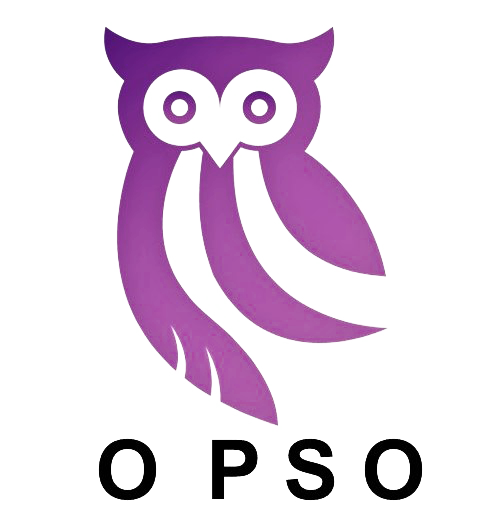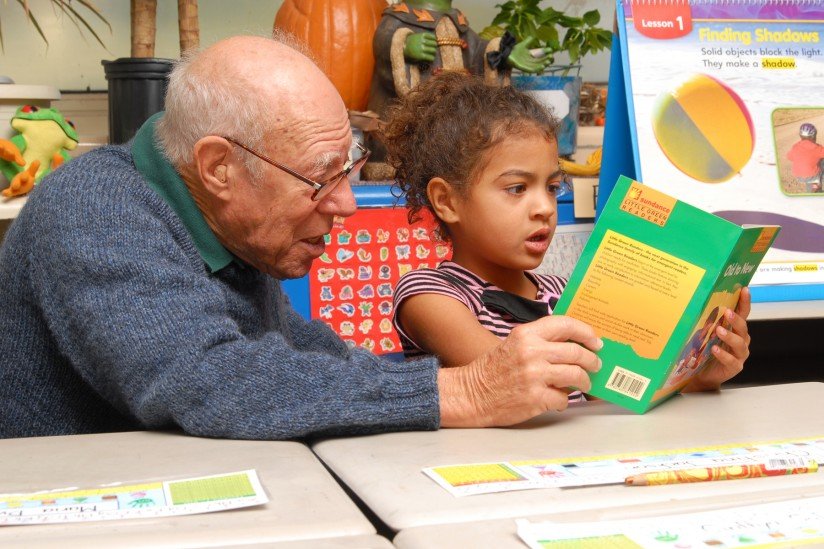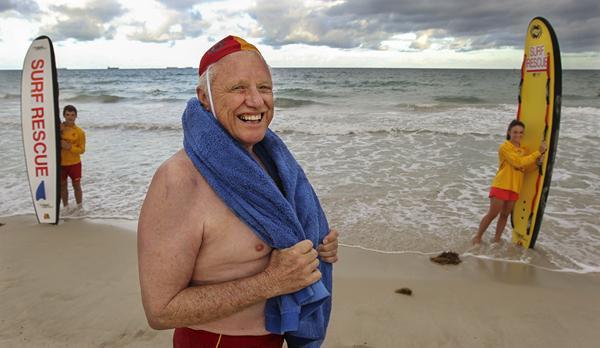University Of Southern California
A program that brings together older adults and elementary school students gives children academic and social support and lets the volunteers see how they can help the next generation.
“The Baltimore Experience Corps Trial” is the first large-scale experiment to demonstrate that taking part in an intergenerational civic engagement program helps older adults feel more generative—care and concern directed toward others, especially those in younger generations.
“In [Erik] Erickson’s life-stage theory, the major goal in midlife is generativity, with efforts to promote the continuation of the next generation,” says Tara L. Gruenewald, assistant professor of gerontology at the University of Southern California. “We all want to create something that outlives us.”
MORE GENERATIVE
The Experience Corps, started in 1995 and now active in 21 US cities as AARP Experience Corps, is a program that pairs older adults with elementary schools to help youngsters improve their academic, social, and behavioral well-being. Harnessing the wisdom and time of older volunteers, the program is a mutually beneficial scenario: kids get the help and encouragement they need, and older adults satisfy their need to be generative and see the impact of their work.
Baltimore was one of the original five Experience Corps locations and has been the site of program evaluation for several years.
A new study, published online in the Journals of Gerontology Series B: Psychological Sciences and Social Sciences, analyzed data from the Baltimore Experience Corps Trial (BECT), a controlled trial testing the benefits of the program for both volunteers and the children they help. Following Experience Corps volunteers and non-volunteer control subjects for two years, researchers periodically assessed whether study participants experienced changes in what they thought about caring for and serving younger members of their community.
Compared to non-volunteers, participating in Experience Corps helped older adults not only want to be more generative but also have a greater appreciation for the generative things they’ve achieved. The randomized controlled design of the trial strongly bolsters the evidence, Gruenewald says.
BETTER HEALTH OUTCOMES
“Even the members of our control group were very engaged and increased their volunteer activity; [all study participants] were highly motivated to give,” Gruenewald says. “Experience Corps participation showed benefits that were above and beyond [the control group’s results]. It’s the full package and provides intense doses of cognitive, psychosocial, and physical stimuli.”
Upcoming BECT analyses will examine the academic, behavioral, and social benefits for children as well as delve further into the psychological and physical benefits for older adult volunteers. Existing research indicates that feelings of generative desire and achievement positively correlate with better health outcomes for seniors.
“To see how motivated elders are to be involved and give back is very affirming. We have a segment of the population that has a lot to give and failure to tap into that resource is quite concerning,” Gruenewald says. “[A program such as Experience Corps] really is a win-win; we help our communities and help elders in the process.”
The National Institute on Aging, the John A. Hartford Foundation, and the Johns Hopkins Older Americans Independence Center funded the research.
Source: Beth Newcomb for USC



